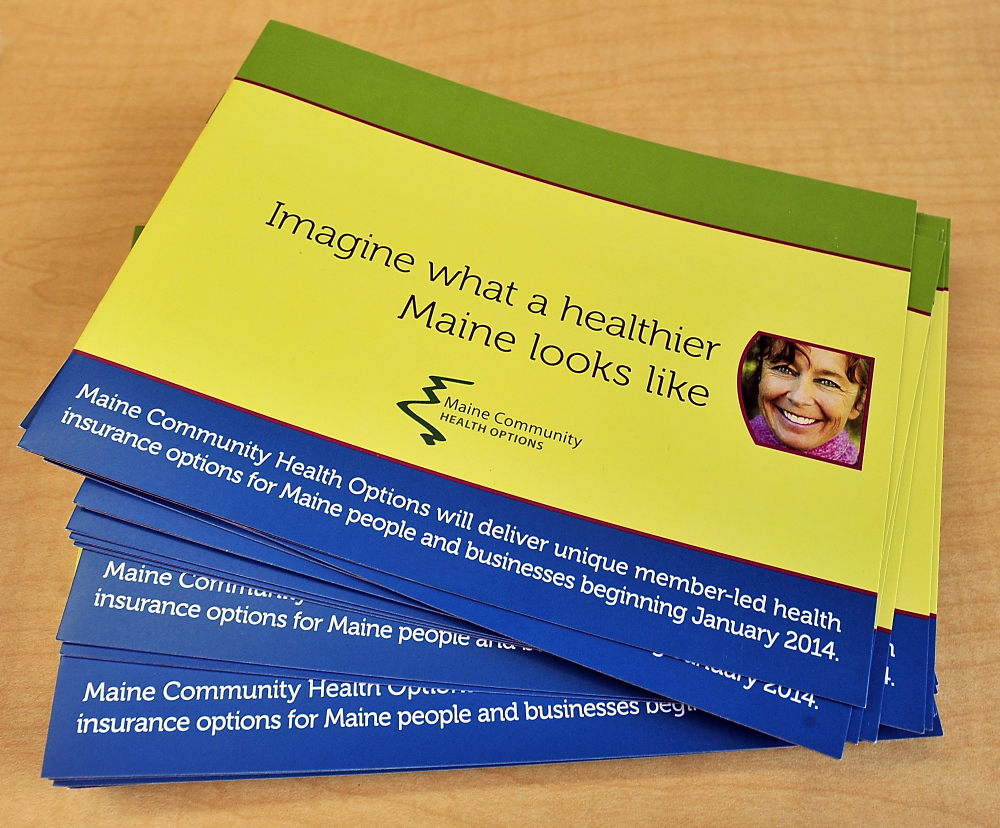A year after becoming the only health insurance cooperative in the country to make money, Maine-based Community Health Options posted a $31 million loss in 2015 and is setting aside $43 million in reserves to cover potential losses in 2016.
The magnitude of the loss for the Lewiston-based nonprofit became clear late last year and led to the decision to stop individual enrollments of new customers in December, weeks before the end of the enrollment period under the Affordable Care Act.
Now, Kevin Lewis, the chief executive officer of Community Health, said the insurer is setting aside millions to cover the possibility of big losses this year, and premiums are likely to go up, although Lewis declined to say how much the increase might be. He said the cooperative will submit its rate proposal to state insurance regulators in mid-May and the premium request is still being developed.
Premiums increased only about 0.5 percent in 2015, Lewis said.
“We have a clear plan for 2016” and beyond, he said. “It’s safe to say there will be (premium) increases.”
CHO is one of about two dozen insurance cooperatives to start up under the federal health insurance law. They were intended to take a slice of the insurance markets created by the act and provide competition to for-profit insurers. About half the cooperatives that started folded by the end of last year, and Community Health was the only cooperative in the nation to make money during 2014, its first year of operation.
It has been a popular choice for Mainers looking for health insurance. Community Health signed up about 40,000 customers in its first year, posted a slight increase in enrollments in 2015, and has 84,000 customers now.
But Lewis said Community Health’s customers accessed significantly more health care last year than during the cooperative’s first year, driving up costs. As with most U.S. insurers, soaring drug costs contributed to the increased claims the cooperative had to deal with.
Experts have said newly-insured customers could be expected to take care of health problems once they were insured, and Lewis said those who signed up in 2014 went to see doctors and had health issues addressed at a rapid rate in 2015.
According to an annual report filed with the National Association of Insurance Commissioners, Community Health paid about $117 million in health claims for 2014 and $250.3 million for 2015.
“That caught us by surprise,” Lewis said,
But Lewis also said the cooperative’s experience has been similar to that of most other insurers and the big increase in its reserves is intended to address that.
“The industry’s market experience in 2015 was awash in red ink,” he said. “Big swings in the insurance industry is nothing new.”
Lewis said Community Health managed to cut $11 million in administration costs at the end of 2015, although he declined to say what specific steps were taken. He also said the cooperative is in contact with customers to help guide them through health care options more directly and make sure health issues are addressed appropriately.
Emily Brostek, executive director of Augusta-based Consumers for Affordable Health Care, said no one expected Community Health’s path to be smooth.
“Health insurance is a competitive market and it’s hard to get a company going,” she said. The experience for the cooperatives was expected to be difficult and Congress had been urged to provide more start-up financing, which would have allowed companies more time to get financially stable.
While the big loss is bad news, Brostek said, she’s confident that Community Health can work with state insurance regulators to get its finances back in order.
Because of the size of the loss, the cooperative is under “enhanced oversight” by the state. Bureau of Insurance spokesman Doug Dunbar said that means the cooperative will be required to communicate with regulators more frequently about its finances and activities.
Brostek said Mainers have relatively wide choices for insurance coverage, either through Community Health or for-profit insurers, such as Anthem Blue Cross, or other non-profits such as Harvard Pilgrim. Tax credits offered under the Affordable Care Act help make those options affordable, she said.
She noted that her organization’s employees are covered under a small group policy from Community Health “and I’m not concerned with my claims being paid.”
But Robert Laszewski of Health Policy and Strategy Associates – a critic of the cooperatives – said Community Health’s dramatic swing from a profit to a big loss demonstrates that the failure of many of the cooperatives was no fluke.
“The bottom fell out” at Community Health last year, he said. “Does it have any money left?”
Laszewski said he worries about the financial stability of Community Health and other cooperatives and said he hopes Maine insurance regulators are keeping a close eye on the nonprofits.
Because of the rules under which the cooperatives were set up, they can’t be rescued by being purchased by for-profit insurers or for-profit investors, he said. Banks aren’t likely to lend money, he said, giving the cooperatives few lifelines if they can’t control costs.
“How close to empty is their gas tank?” he said. “They have a daunting challenge.”
Edward D. Murphy can be contacted at 791-6465 or at:
emurphy@pressherald.com
This story has been corrected to reflect that Harvard Pilgrim is a non-profit insurer.
Send questions/comments to the editors.




Comments are no longer available on this story